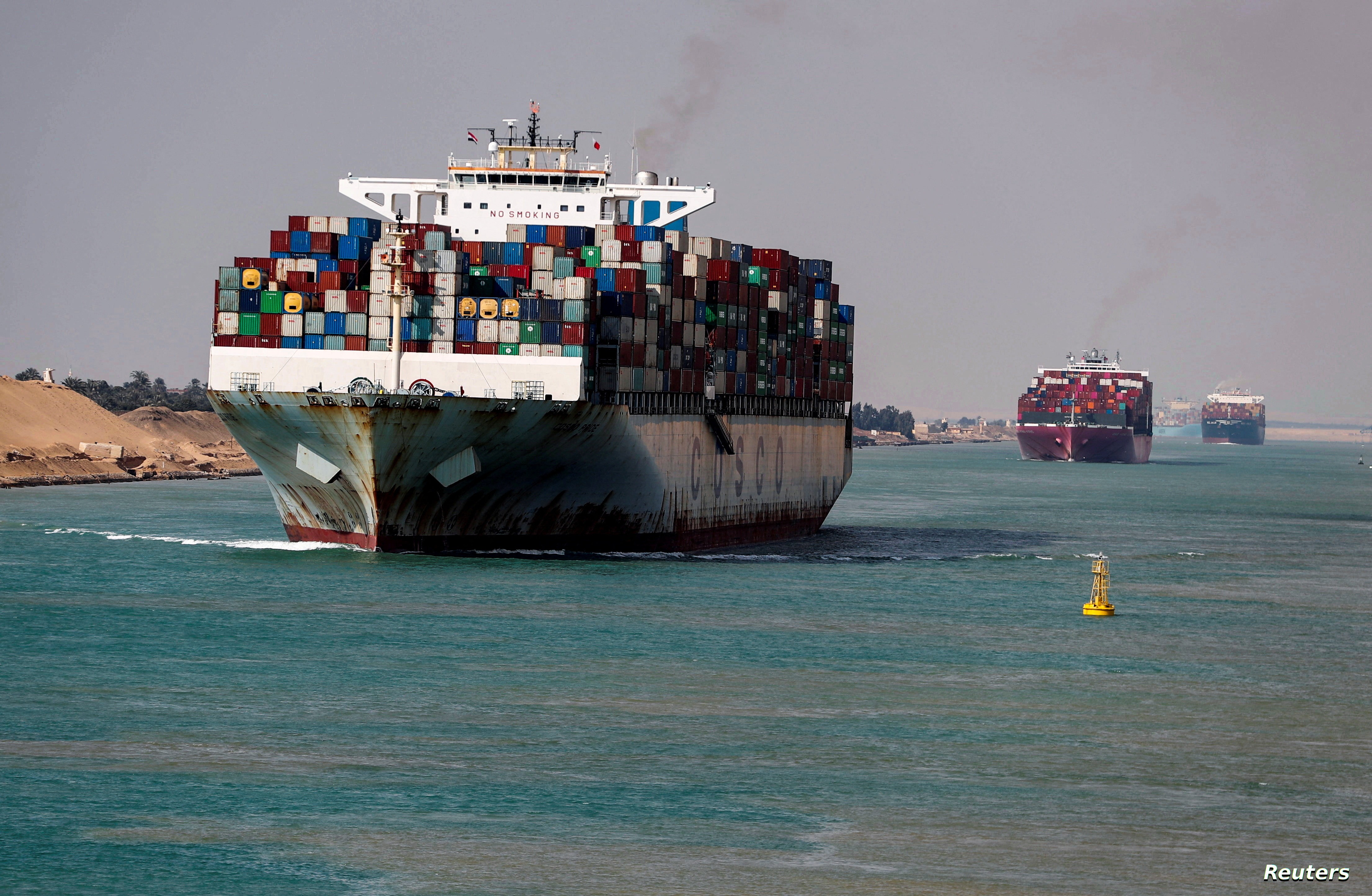


Barran Press
The Republic of Egypt confirmed on Thursday, July 18, 2024, a 23.5% decline in Suez Canal revenue during the past fiscal year ending in June, reaching $7.2 billion. This downturn is attributed to the ongoing crisis of attacks by the Houthi group, internationally classified as a terrorist organization, on commercial vessels in the Red Sea.
A statement issued by the Suez Canal Authority, quoting its chairman Osama Rabie, confirmed on Thursday that the Red Sea crisis significantly impacted the movement of ships transiting the canal. The statement was reported by the Turkish news agency Anadolu.
"The movement of ships transiting the canal was severely affected by the repercussions of the Red Sea crisis," Rabie said. "Security challenges have led many ship owners and operators to choose alternative routes to the canal, negatively impacting the canal's transit rates."
He added that "the decline is reflected in the shipping statistics for the fiscal year 2023/2024, which recorded the passage of 20,148 ships with a total net tonnage of 1 billion tons and revenues of $7.2 billion."
He continued, "However, in the previous fiscal year 2022/2023, 25,911 ships transited, with a total net tonnage of 1.5 billion tons, generating revenues of $9.4 billion."
According to the Egyptian official, the impact of the current tensions in the Red Sea "affects not only the Suez Canal but also the maritime transport market, trade movement, and global supply chains."
Earlier, Egyptian media reports revealed a decline in Suez Canal revenue during the fiscal year 2024/2023 by approximately $2.1 billion, as a result of the crisis of attacks by the Houthi group, internationally classified as a terrorist organization, in the Red Sea.
The Suez Canal is a primary source of foreign currency for the Republic of Egypt. It is also responsible for about one-eighth of global shipping trade, including about 30% of the world's container traffic, according to the World Bank.
Since last November, the Houthi group has continued its attacks with missiles and drones against commercial cargo ships in the Red Sea, the Arabian Sea, and the Gulf of Aden.
The attacks by the group, internationally classified as a terrorist organization, have led to increased maritime insurance costs, prompting many international shipping companies to favor the much longer route around the southern tip of the African continent.
To deter the Houthis and protect maritime navigation, the United States formed a multinational coalition in December 2023. Meanwhile, US forces carry out occasional strikes against Houthi military targets.
Since January 12th, the number of US and British airstrikes against the Houthis on the ground has reached approximately 560, resulting in the deaths of 58 individuals and injuries to 86 others, according to the group's own admission.
The internationally recognized Yemeni government states that Western strikes are ineffective in neutralizing the Houthi threat to navigation and that the most effective solution is to support its armed forces to retake Hodeidah, its ports, and other areas controlled by the group.